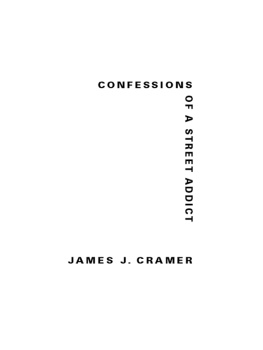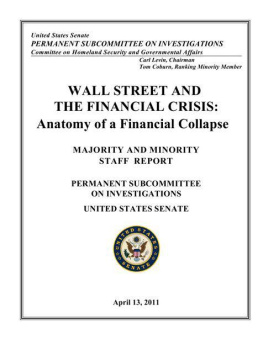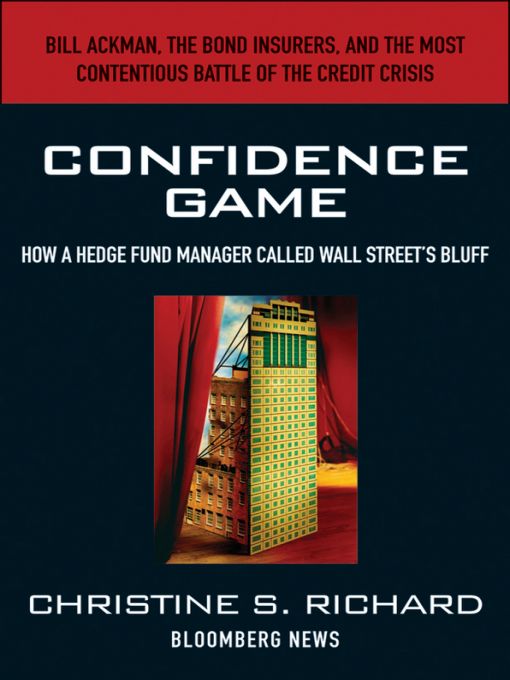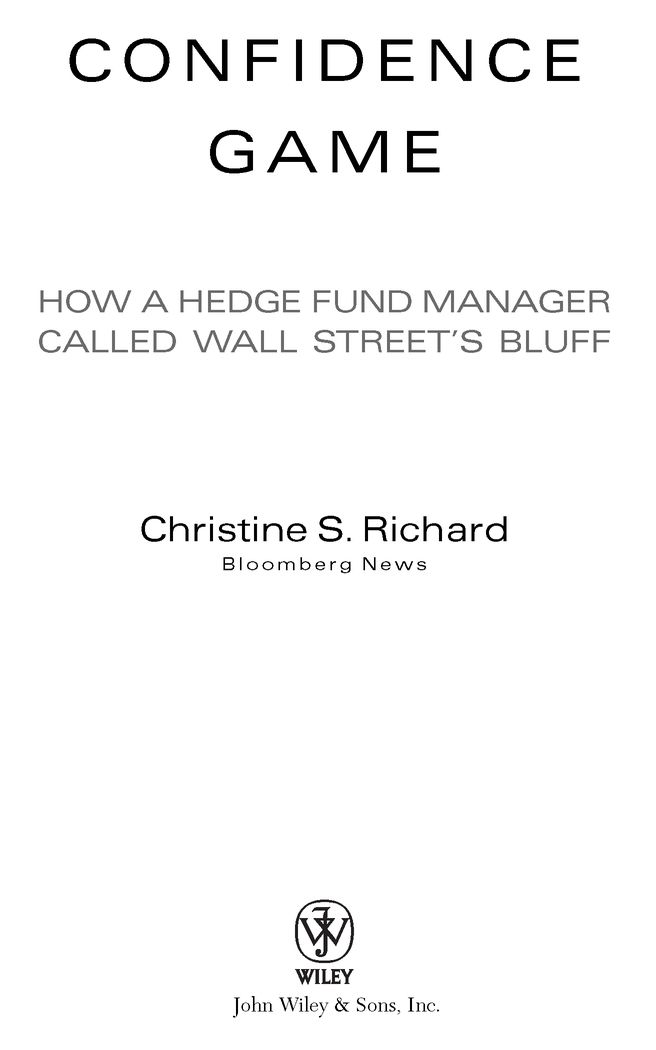Table of Contents
Praise for
Confidence Game How a Hedge Fund Manager Called Wall Streets Bluff
by Christine S. Richard
Bloomberg News
Christine Richards Confidence Game is an insightful, timely, and fascinating high-speed drive into the often difficult-to-penetrate world of short sellers, with its particular focus on Bill Ackman and his campaign against monoline insurance giant MBIA.
SCOTT B. MACDONALD
SENIOR MANAGING DIRECTOR
ALADDIN CAPITAL LLC AND COAUTHOR OF SEPARATING FOOLS FROM
THEIR MONEY
How to head off the next crash? Listen to the dissidents now. Christine Richards deeply researched and deftly written account of Bill Ackmans high-stakes struggle with a leading pillar of a now-collapsed system is the right book at the right time, and a mesmerizing read.
DEAN STARKMAN
EDITOR
THE AUDIT, THE BUSINESS SECTION OF THE COLUMBIA JOURNALISM
REVIEW
Bill Ackmans battle with MBIA will be remembered as one of the great epics of Wall Street history, and no one followed the story more closely than Christine Richard.
BETHANY MCLEAN
COAUTHOR OF THE SMARTEST GUYS IN THE ROOM
Finally, a financial crisis book with a hero. Its a compelling morality tale of how one man uncovered a massive fraud and then fought tenaciously to show the world he was right. Richard had unparalleled access to the major players in this sagafrom venal executives to incompetent regulatorsand she weaves the threads of complex financial shenanigans into a page-turning narrative. Ackman emerges as the Don Quixote of financial markets: you will root for him and a happy ending.
FRANK PARTNOY
AUTHOR OF F.I.A.S.C.O., INFECTIOUS GREED, AND THE MATCH KING
Confidence Game is a lesson for all investors on the value of independent and exhaustive research. Its also a riveting story.
TODD SULLIVAN
CREATOR OF VALUEPLAYS.NET AND A REGULAR CONTRIBUTOR TO THE
STOCKTWITS BLOG NETWORK AND SEEKING ALPHA
For Dean
Preface
FOR NEARLY 10 YEARS, I covered the bond market as a Wall Street reporter, first at Dow Jones and later for Bloomberg News. It was a period of enormous growth and innovation in the credit markets. As the expansion peaked, Wall Street manufactured billions of dollars of debt every day, astonishing amounts of it considered triple-A or virtually risk-free. For a while, this was accomplished with true financial innovation. Later, the process was corrupted by delusion and dishonesty.
Of all the stories I covered, there was one that never seemed to go away: the battle between a company called MBIA and a hedge fund manager named Bill Ackman, who was obsessed with that companys practices.
What is MBIA? It stands for Municipal Bond Insurance Association. For years it was the largest of a handful of extraordinarily profitable companies that together guaranteed more than $2 trillion of debt issued by entities ranging from the Cincinnati school system to a shell company in the Cayman Islands. Insurance transformed lower-rated bonds into triple-A-rated securities. Business boomed, giving MBIA some of the highest reported profit margins of any publicly traded company in the United Stateseven higher than Google and Microsoft.
If there was something about this business that was too good to be true, few people had any reason to point it out. Then in late 2002, Ackman, who ran a hedge fund called Gotham Partners, issued a research report titled Is MBIA Triple-A? in which he questioned just about every aspect of MBIAs business. Before he made his views public, Ackman bet against the company by purchasing derivative contracts called credit-default swaps, which would make his fund billions of dollars if MBIA filed for bankruptcy.
Ackmans research report was the opening shot in what became a long and bitter Wall Street feud between him and MBIA. From the start, MBIA was determined to silence Ackmans criticism, and he was no less determined to see MBIA leveled. Ackman was investigated at MBIAs urging by Eliot Spitzer, then New Yorks attorney general, and the Securities and Exchange Commission (SEC) followed suit.
For more than five years, the hedge fund manager questioned nearly every aspect of MBIAs business, bringing his research to the attention of rating companies, regulators, reporters, and investors. He cornered the chief executive officer (CEO) of PriceWaterhouseCoopers, MBIAs auditors, at a charity function, broached the issue with a bullish equity analyst at a funeral, and wrote to board members of Moodys Investors Service, warning them they could be held personally liable for inaccurate ratings. Eventually, Ackman turned the tables on MBIA, getting regulators to probe MBIAs business practices.
Big names have dominated the headlines during the credit crisis. Bear Stearns was the first major financial institution to collapse. American International Group required a $180 billion government rescue, a larger commitment in inflation-adjusted dollars than the Marshall Plan that rebuilt Europe after World War II. Lehman Brothers was the financial failure felt around the world.
Before all of this happened, another crisis played out. Little known outside of Wall Street, MBIA made hundreds of millions of dollars a year selling its triple-A credit rating. At the same time, it boasted to analysts and investors that it insured bonds on which it saw no chance of loss.
In the lobby of MBIAs headquarters in Armonk, New York, visitors were greeted by a large photo of sunlight pouring through trees. The image is one you might expect to see on an inspirational greeting cardthe sunlight, a symbol of some higher power. We help our clients achieve their financial goals by providing AAA credit protection, read the message alongside the photo. The sanctity of MBIA and the permanence of its triple-A credit rating were articles of faith on Wall Street.
Brash, blunt, almost neurotically persistent, Ackman was the perfect foil to the bond insurance business. Even among his friends and colleagues, Ackman is known for being a font of not-always-welcome forthrightness. He will tell people straight out that their hairstyle is unflattering or they ought to consult with his nutritionist about losing some weight. Ask him about his candor, and he says he gives people honest advice and thats a rare thing in this world.
The first time I spoke with Ackman was December 9, 2002, the day he issued his report on MBIA. The more I looked, the more I found, he told me, and he just kept finding more. We spoke about MBIA and bond insurance on and off for more than five years.
Persistence had its price. Eventually, nearly every analyst who covered the company refused to take my calls. But MBIA was intriguing. I found the line that summed up the intrigue and contradiction of MBIA in a presentation Ackman made to Moodys Investors Service: Management integrity has been compromised to uphold the no-loss illusion. Someday, I thought, this conflict over a triple-A-rated company that was not as safe as it appeared would make a great story, one that might prove bigger than Ackman and MBIA.
How was it that MBIA could write insurance on hundreds of billions of dollars of debt and yet tell its investors that it guaranteed only bonds on which it expected to pay no claims? In an article for





